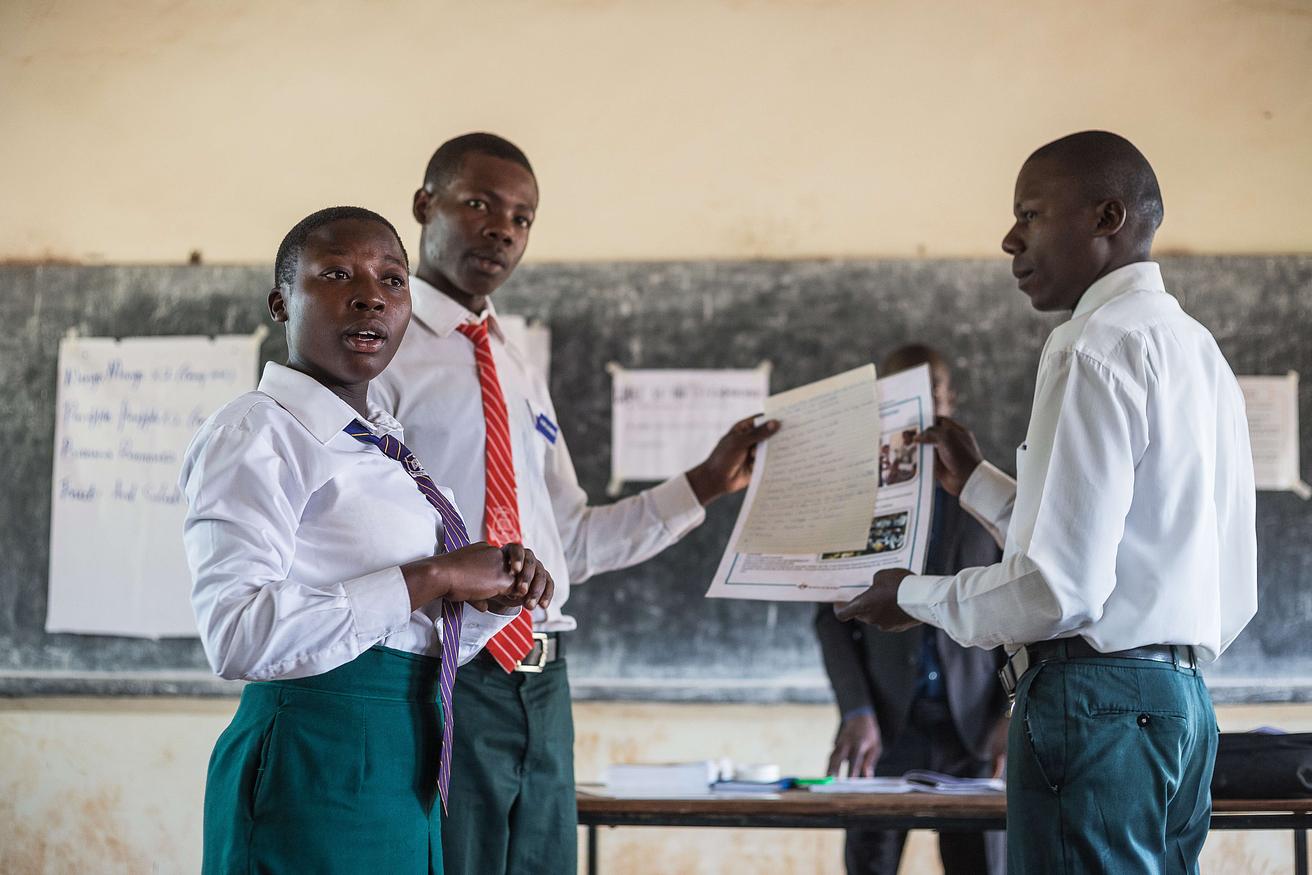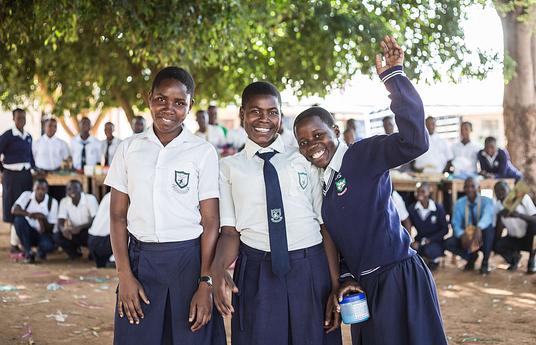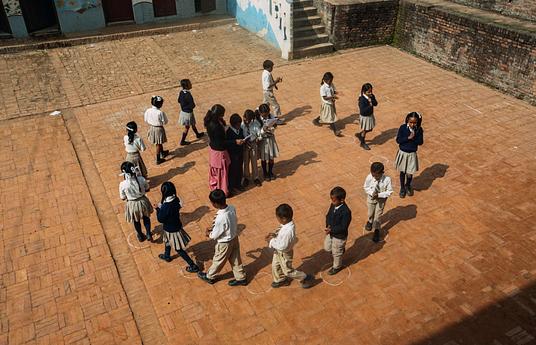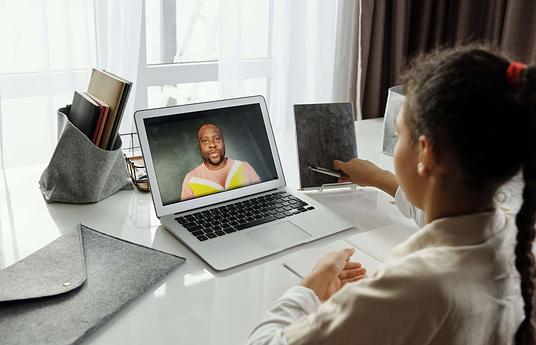When the Covid-19 crisis forced schools to close their doors, leaders of the African youth skills organisation, Educate!, realised they too were effectively out of business. A big part of their operating model relied on the provision of face-to-face activities within local communities, but Covid meant programme leaders had to rethink their entire approach – and fast.
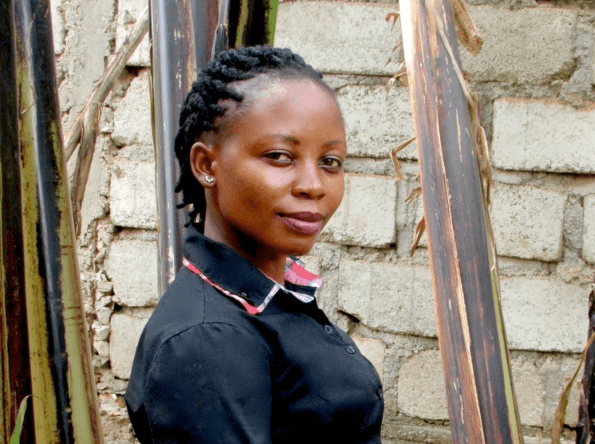 | For Hawah Nabbuye, Country Director for Educate! In Uganda, it was a worrying time. “Access to education is a really important focus for us and in 2020 we had almost reached parity in terms of the gender balance of students in school,” she explains. |
“Suddenly Covid became a new barrier, and it could have taken us several steps backwards.”
Access to education in Uganda is not a given, particularly in rural areas, and currently, only one in 20 girls continue their learning beyond primary school. The gender imbalance exists partly because girls and young women are often expected to stay at home to look after their household or perform caregiving tasks, and it was clear that the challenges brought about by Covid would only exacerbate that expectation for many families.
Additionally, internet connectivity is still non-existent in some regions, so students don’t have the luxury of online learning programmes relied on so heavily by students in wealthier parts of the world. But Nabbuye’s team formed a plan. “The majority of Ugandans use basic-function mobile phones which only support calls and messages,” she explains. “We couldn’t do video calls through them because even with the functionality it’s just too costly for people to access. But what we've been doing instead is hosting conference calls over the normal phone line, which doesn’t require the internet.”
“So what you end up with is a community of many more learners all in contact.”
Nabbuye and colleagues calculated that each student could connect with up to five people over conference call, and each of those people could connect with a further five people to share information learned. “So what you end up with is a community of many more learners all in contact.”
EMPOWERING THE NEXT GENERATION OF ENTREPRENEURS
Educate! works with high school students and out-of-school youth communities to provide skills and support them towards becoming young leaders and business owners in their own right. This takes shape in a number of different ways, Nabbuye explains:
“One is through our leadership and entrepreneurship course, which can be undertaken in school or through our special six to eight-week boot camps. We also provide mentorship programmes and guidance and facilitation to start a small business.”
Educate! has been able to sponsor underprivileged youth groups both in and out of school to provide airtime (mobile phone credit) so that they could keep connected to their peers even during the height of Covid-19 restrictions. Ugandan schools only opened again in January 2022 and there is work to do to help students catch up on lost time, but Nabbuye is confident that the experience has sparked new opportunities for outreach even beyond the pandemic.
“For this year, we are really focusing on what the programs are looking like in schools, but we are also looking at the alternative pathways to secondary education – particularly for people that aren't able to attend.” Educate! Plans to run intensive “boot camp” style learning programmes to help children get up to speed on their basic skills, but also to give them a crash course in business and entrepreneurship to take into the world of work.
“It is quite literally changing lives.”
Crucially, Nabbuye wants to expand on the region’s remote learning facilities, continuing in the first instance with conference call set-ups – which could make a huge difference to girls working at home and help reduce the gender gap. “It’s been a real game-changer, and it is quite literally changing lives,” says Nabbuye.
LESSONS FOR THE FUTURE
Promoting fair access to quality education is a cause that sits close to Nabbuye’s heart, and is the reason why she chose a career in education outreach. Where she grew up in Uganda, there were two types of schools, she explains: “The first school I went to was a really good one, with access to the internet, support from teachers and an environment that was supportive and aspirational,” she says. “But then for a time, when my family went through some financial difficulties, I had to go to the not-so-good school, where not only the opportunities but the quality of teaching was completely different.”
“It was a real shock for me, I remember that was when it really hit me the differences in opportunity that money can afford people. It was something I’ve carried with me and motivated me to want to promote a change.”
As a regional leader, a big part of Nabbuye’s role includes communicating with other stakeholders such as local businesses and the government to build new partnerships that can help to support education programmes in the region. But this is balanced with school visits and talking to teachers, Educate! mentors and students directly. “It’s important for me to be able to go to the schools and see the programmes working first-hand,” she explains. “That way we can see the things that work well and the areas that can be improved.”
For fellow innovators seeking to run similar outreach programmes successfully, Nabbuye advises regular feedback sessions between participants, gathering data wherever possible. Here, basic phone access can prove useful once again: Educate! Shares surveys via text message for students and their teachers to provide a simple way of monitoring progress and altering course design where necessary.
“Just because you think the idea is fantastic, that doesn't mean that it works in practice: you have to be able to experiment and pilot it, working with the people you’re serving to really know its impact,” she adds.
Above all, innovators should seek to work with like-minded people who are passionate about the cause, Nabbuye concludes. “Organisation culture is so important because it’s really the people you're working with who determine the project’s success. In my experience, it helps to encourage everyone to remain passionate about the overall vision of the organisation – even when problems arise – so that even the most challenging experiences help the organisation to grow.”
Learn more about Hawah Nabbuye & her work here
Educate! has been featured in numerous HundrED Collections. HundrED Global is an annual collection of 100 of the most impactful and scalable education innovations in the world. If you are an innovator working in the K12 education space submit your innovation to the HundrED 2023 Global Collection before June 1st, 2022.
